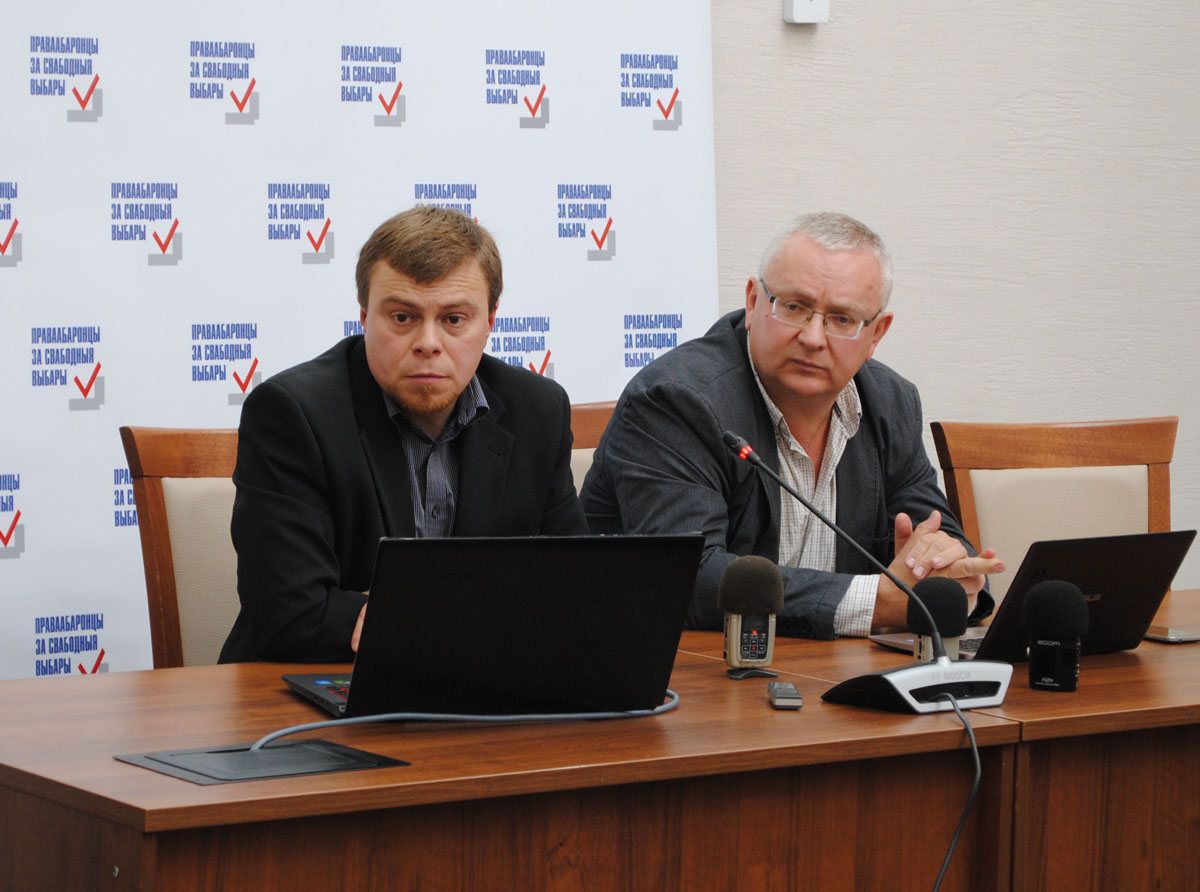Aleh Hulak: There will be some changes in the Electoral Code, but grounds for criticism will obviously remain

Uladzimir Labkovich and Aleh Hulak, coordinators of the campaign “Human Rights Defenders for Free Elections”, at a press conference following the elections of deputies of the House of Representatives of the 6th convocation
The interdepartmental working group considered yesterday the recommendations on improving the electoral process in Belarus that were made by the OSCE ODIHR following last year’s parliamentary elections. Priority recommendations submitted by the campaign Human Rights Defenders for Free Elections were also presented at the meeting.
Hanna Kanapatskaya, member of Parliament, and Aleh Hulak, chairman of the Belarusian Helsinki Committee and one of the coordinators of Human Rights Defenders for Free Elections, were also invited to the meeting.
“We focused on the core problems, namely the formation of election commissions, the procedure of vote count and its transparency, judicial review of electoral disputes, the issue of providing more rights to observers, as well as another question that causes a lot of criticism — the procedure of early voting,” Hulak said.
The BHC leader said in his comments on the work of the group that the discussed proposals were primarily based on the problems mentioned in the OSCE ODIHR report on the results of the 2016 parliamentary elections. He also hopes that some conclusions will be made of the proposals by the campaign Human Rights Defenders for Free Elections, not least because they are largely consonant with the proposals of the OSCE ODIHR.
“As a result of the general discussion, I had the impression that some practical steps will be taken, but grounds for criticism will also obviously remain, since we perceive some electoral issues in a little different light. Talking about the formation of the commissions, it is objectively necessary, on the one hand, that the commissions were pluralistic, and, on the other hand, it is necessary to maintain their viability. We offered to have a deeper discussion of these issues, which would take into account the views of all stakeholders and would help develop a well-considered decision,” Hulak said.
The human rights defender cannot yet say which of the proposals discussed by the working group will be submitted to the President, which of them will remain after he examines them, and which will result in assigning the development of specific proposals for amending the Electoral Code. So far, it is more about preparatory work, he said.

















